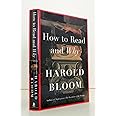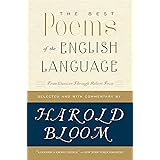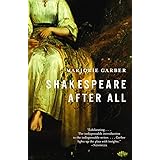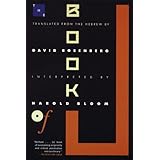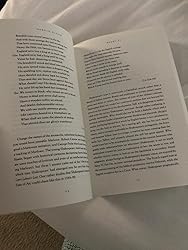Buy new:
-44% $19.48$19.48
Save with Used - Good
$9.38$9.38
Ships from: Amazon Sold by: 2nd Life Books





Download the free Kindle app and start reading Kindle books instantly on your smartphone, tablet, or computer - no Kindle device required.
Read instantly on your browser with Kindle for Web.
Using your mobile phone camera - scan the code below and download the Kindle app.

OK
Shakespeare: The Invention of the Human Hardcover – October 26, 1998
Purchase options and add-ons
- Print length745 pages
- LanguageEnglish
- PublisherRiverhead Hardcover
- Publication dateOctober 26, 1998
- Reading age18 years and up
- Dimensions6.56 x 2.25 x 9.52 inches
- ISBN-101573221201
- ISBN-13978-1573221207
The Amazon Book Review
Book recommendations, author interviews, editors' picks, and more. Read it now.
Frequently bought together

Similar items that may deliver to you quickly
Editorial Reviews
Amazon.com Review
It is a long and fascinating itinerary, and one littered with thousands of sharp insights. Listen to Bloom on Romeo and Juliet: "The Nurse and Mercutio, both of them audience favorites, are nevertheless bad news, in different but complementary ways." On The Merchant of Venice: "To reduce him to contemporary theatrical terms, Shylock would be an Arthur Miller protagonist displaced into a Cole Porter musical, Willy Loman wandering about in Kiss Me Kate." On As You Like It: "Rosalind is unique in Shakespeare, perhaps indeed in Western drama, because it is so difficult to achieve a perspective upon her that she herself does not anticipate and share." Bloom even offers some belated vocational counseling to Falstaff, identifying him as an Elizabethan Mr. Chips: "Falstaff is more than skeptical, but he is too much of a teacher (his true vocation, more than highwayman) to follow skepticism out to its nihilistic borders, as Hamlet does."
In the end, it doesn't matter very much whether we agree with all or any of these ideas. What does matter is that Bloom's capacious book sends us hurrying back to some of the central texts of our civilization. "The ultimate use of Shakespeare," the author asserts, "is to let him teach you to think too well, to whatever truth you can sustain without perishing." Bloom himself has made excellent use of his hero's instruction, and now he teaches us all to do the same. --Daniel Hintzsche
From Publishers Weekly
Copyright 1998 Reed Business Information, Inc.
From Library Journal
Copyright 1998 Reed Business Information, Inc.
From Booklist
From Kirkus Reviews
Review
It is a huge cloak-bag of ideas, stuffed with true wisdom and false bombast in equal measure. It breaks the rules, but demands to be forgiven because it is alive and full of magnanimity. It is a feast. -- The Wall Street Journal, Jonathan Bate
You don't have to swallow Bloom's argument whole ... to value his local insights. The most exhilarating observations ... have the quality of aphorisms. -- The New York Times Book Review, James Shapiro
Product details
- Publisher : Riverhead Hardcover (October 26, 1998)
- Language : English
- Hardcover : 745 pages
- ISBN-10 : 1573221201
- ISBN-13 : 978-1573221207
- Reading age : 18 years and up
- Item Weight : 2.6 pounds
- Dimensions : 6.56 x 2.25 x 9.52 inches
- Best Sellers Rank: #138,626 in Books (See Top 100 in Books)
- #30 in Drama Literary Criticism
- #288 in Literary Criticism & Theory
- #558 in Dramas & Plays
- Customer Reviews:
About the author

Harold Bloom is a Sterling Professor of Humanities at Yale University and a former Charles Eliot Norton Professor at Harvard. His more than thirty books include The Best Poems of the English Language, The Art of Reading Poetry, and The Book of J. He is a MacArthur Prize Fellow, a member of the American Academy of Arts and Letters, and the recipient of many awards and honorary degrees, including the Academy's Gold Medal for Belles Lettres and Criticism, the International Prize of Catalonia, and the Alfonso Reyes Prize of Mexico.
Customer reviews
Customer Reviews, including Product Star Ratings help customers to learn more about the product and decide whether it is the right product for them.
To calculate the overall star rating and percentage breakdown by star, we don’t use a simple average. Instead, our system considers things like how recent a review is and if the reviewer bought the item on Amazon. It also analyzed reviews to verify trustworthiness.
Learn more how customers reviews work on AmazonReviews with images
-
Top reviews
Top reviews from the United States
There was a problem filtering reviews right now. Please try again later.
Bloom’s Shakespeare is not just a creative genius. He is someone, like Nietzsche or Bloom himself, who has struggled—or might even be said to have created—the uniquely modern predicament of existence. According to Bloom, Shakespeare’s universe is essentially Elsinore. That is, we live in a world where we recognize that all is not exactly aright.
Hamlet’s struggle is what to do with such an existence. Try to right all wrongs? But how can one right that fundamental wrong that the work of building a human consciousness is doomed to the dissolution of the body?
Bloom’s Hamlet is then a Dionysian hero, a character who recognizes the Sisyphean nature of human existence. And Bloom sees Shakespeare’s opus as a slowly mounting crescendo toward the plaintive song of Hamlet himself.
In other words, readers cannot simply read Bloom’s descriptions of their favorite plays. Nor can readers rest assured in the thought that Shakespeare has helped create modern personas.
No, they must enter the Shakespearean universe and struggle as much as Jacob wrestled with the angel. Shakespeare is not so much high culture as the finest depiction of what it means to be human.
In a few words, not a book to be taken up lightly. One must be ready to be thrown into combat alongside Shakespeare to really grok the full meaning of this text. I can only encourage the potential reader to enter the ring for a captivating emotional and intellectual experience.
For those who have wondered what the fuss made over Shakespeare is all about, this work will help you come to terms with this question. Prof Bloom can be controversial, in doing so he displaces complacency in dogma and for that we should all be grateful. Approaching plays armed with a finer resolution I now look for the evidence and while it is not always clear the searching (facilitated and directed by Prof Bloom) being more purposeful, I have found more rewarding and dare I say - exciting. Each play is considered and their contribution to our incremental evolution of the internalized self-object unfolds. Prof Bloom explains that this internalized process is not just enhanced but a result of the way Shakespeare, through his plays, themes and characters and of cause his words creates as it were a mirror through which we see and understand ourselves (and what we are capable of thinking and feeling and doing)as an individual and as a composite of interpersonal interactions. Shakespeare provides us with the concepts in language which allow us to exam (think about and communicate internally and externally) and attribute meaning to experience and in so doing the Human is invented.
The complexity of this spectrum of understanding unfolds through the mounting collection of plays. It seems that the parts within us all in all their fullness, which we feel resonating with Shakespeare may well resonate because they were first elaborated by the Bard and without Shakespeare's elaboration the "Human" may well have awaited "invention" by another.
passionate about teaching literature as literature, not as psychology, politics, economics, theology or
other ideologies. The emphasis is not on the stories (the Bard mostly borrowed these from historians or
other writers) but the characters, personalities, and human nature. While Shakespeare was a dramatist,
he was even more a poet, and developed the personalities through this poetry. The sonnets were
certainly poems, but so were the plays.
Among the characters that Bloom emphasizes again and again are Hamlet, Falstaff, Cleopatra,
Macbeth, Iago, Rosalind, Edmund and Lear. He treats the characters as real people, because they
seem more real than a lot of the people in so-called real life. So for instance, in Poem Unlimited
Bloom offers speculation about what Hamlet did, going to England and Germany to learn drama
and other intellectual disciplines. Hamlet has actually surpassed his creator and become an
author in his own right. We quote Hamlet as if we're quoting Socrates or Jesus or Buddha.
These characters are traced through Shakespeare's career development with the comedies,
histories, tragedies and romances (a term that Bloom dislikes for the final plays such as
the Tempest). When it comes to the genres, Shakespeare is beyond genre, as Polonius
showed with his "history-comedy-tragedy" etc. and all the combinations including poem
unlimited.
Besides Hamlet, Bloom's favorite is Falstaff, from Henry IV part I and II. Even though he's
a raunchy big old guy, he is almost as smart as Hamlet and teaches us about joie de vivre
and humor. The apotheosis or death of Cleopatra was the end of an era, as she had been
the lover of Julius Caesar, Pompey, Mark Antony etc. Octavius went on to great political
accomplishments but was not as interesting as the previous generation. But Cleopatra's
death was also the end of Shakespeare's high tragedies.
Bloom shows Shakespeare's development in relation to Chaucer, Marlowe who came
before him, Ben Jonson who was a contemporary, Fletcher who came along toward
the end, and the successor John Milton. Bloom also relates Shakespeare's characters
to others in the western canon such as Dante, Cervantes, Tolstoy, Dostoyevsky,
Austen, Coleridge, Melville, Eliot, Joyce, Woolf and Proust.
How does Bloom understand himself? He is a critic in the romantic tradition, along
with Dr. Johnson, AC Bradley, Hazlitt, Swinburne and Goddard. He is passionate about
teaching Shakespeare as literature and not through Freud or Marx. In fact he interprets
Freud through Shakespeare (!) rather than vice versa. This is a very long book but joyfully
quick.




